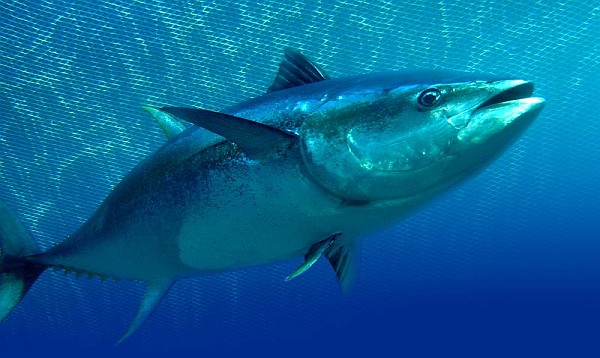Geneva, Switzerland - A World Trade Organization appellate panel on Wednesday said US "dolphin safe" tuna labeling rules unfairly discriminate against Mexico, raising the possibility of sanctions on US goods if the rules are not modified or dropped.
Nkenge Harmon, a spokeswoman for the United States Trade Representative's office, called the ruling a "mixed result" that did not necessarily mean the United States had to abandon the labeling program.
"It's too soon to say. We will review the report carefully and consider its implications. At this time it would be premature to discuss any specific actions that might be required to implement the findings," Harmon said.
The dispute centers on the technique of using dolphins to round up tuna, which the United States says disqualifies some Mexican tuna products from being "dolphin safe."
Mexico contends the methods its companies use to harvest tuna do not harm dolphins and the way the US defines "dolphin safe" tuna unfairly restricts trade.
According to the US National Oceanic and Atmospheric Administration, dolphins and tuna often swim together in the eastern tropical Pacific Ocean in closely packed schools.
The United States definition of dolphin safe tuna requires the fish are caught without using a huge net, known as a purse seine net, to encircle dolphins and that no dolphins are killed or seriously injured in the process. That is more restrictive than the internationally accepted definition, which does not mention the use of purse seine nets, NOAA says on its website.
The WTO's Appellate Body found the United States labeling rules were not even-handed and worked "to the detriment of Mexican tuna products", a decision that Mexico said marked a victory in a 20-year battle in an industry that employs more than 10,000 Mexicans and generated $112 million last year.
"If this decision is not implemented, Mexico has the right, according to the rules of the WTO, to enact commercial sanctions," Mexico's Economy Minister Bruno Ferrari said.
Mexico complained about the US rules in 2008, reviving a trade dispute that first erupted in 1991, and a WTO dispute panel ruled on the case in September 2011, triggering appeals from both the United States and Mexico.
 |
However, the appeal ruling on Wednesday turned that on its head, saying US rules were indeed discriminatory but not overly restrictive.
The dispute panel said the labeling rules did not discriminate against Mexico but were more restrictive than they needed to be to meet the goals of informing consumers and protecting dolphins.
United States dolphin-safe labeling rules allow tuna products that meet the standards of the US provisions to be labeled as dolphin safe, but not if dolphins are deliberately chased and encircled in order to catch tuna.
Some Mexican fishing vessels use this method when fishing for tuna, but Mexico says its tuna fishing boats catch only mature tuna and all have an independent observer on board to certify no dolphins are hurt.
The United States Trade Representative's Office said it disagreed that the rules were not even-handed.
"The US dolphin safe labeling provisions prevent consumer deception and are in place to assure US consumers that when they buy a can of tuna with a dolphin safe label, that tuna was caught in a way that does not harm dolphins," Harmon said in a statement.
"These provisions also seek to contribute to dolphin protection by helping ensure that, when consumers favor tuna products that are dolphin safe, the United States market does not contribute to fishing practices that are harmful to dolphins."
US consumer rights group "Public Citizen" said the decision dealt a major blow to consumers' ability to make informed decisions about their food.
"This latest ruling makes truth-in-labeling the latest casualty of so-called ‘trade pacts,' which are more about pushing deregulation than actual trade," Todd Tucker, research director for Public Citizen's Global Trade Watch, said in a statement. "Members of Congress and the public should be very concerned that even voluntary standards can be deemed trade barriers."


